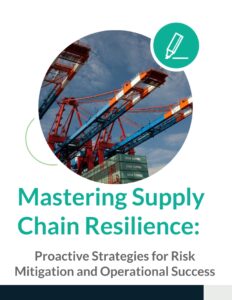Cultivating Impact: Building a Corporate Culture that Drives Success and Social Responsibility
Corporate culture is a term that is often used to describe the overall atmosphere and working environment within a company. It encompasses the values, beliefs, and behaviors that shape how employees interact with each other, with customers, and with the broader community. In essence, corporate culture is the driving force behind a company’s day-to-day operations and the way it conducts business.
Creating and sustaining a strong corporate culture is crucial for businesses looking to achieve long-term growth and success. It is not enough to simply have a positive work environment; businesses must also strive to make a positive impact in the world around them. This means aligning their core values and mission with socially responsible practices and finding ways to contribute to the greater good.
To shift their culture towards sustainability, impact, and success, businesses must take critical steps. First and foremost, they need to define their core values and purpose. By clearly articulating what they stand for and what they aim to achieve, companies can create a sense of direction and purpose that guides their actions.
Businesses must ensure that their leaders embody and promote the desired culture. Leaders play a crucial role in shaping and reinforcing corporate culture, so it is essential that they actively model the behaviors and values that the company wishes to encourage.
To foster a positive and thriving corporate culture, businesses must make it a priority to ensure that their leaders embody and promote the desired values and behaviors. Leaders hold a significant amount of influence when it comes to shaping and reinforcing the culture within an organization. They serve as the driving force behind creating an environment that aligns with the company’s vision and mission.
Leaders are not only responsible for setting the tone and guiding the organization but also for actively modeling the behaviors and values that the company wishes to instill. By demonstrating these desired qualities themselves, leaders can inspire and motivate their subordinates to follow suit. When employees witness their leaders consistently exemplifying the values and behaviors, it reinforces the belief that these principles are truly important and should be upheld throughout the entire organization.
Leaders can effectively contribute to shaping culture by encouraging open communication, collaboration, and innovation among team members. By promoting a culture of inclusivity and transparency, leaders can create an environment where employees feel valued and empowered to share their ideas and opinions. This, in turn, fosters a sense of belonging and ownership, leading to increased employee engagement and productivity.
Furthermore, leaders can actively participate in initiatives and programs that help promote the desired culture. They can provide resources and support for employee training and development, ensuring that employees have the necessary skills and knowledge to uphold the organization’s values. Additionally, leaders can recognize and reward individuals who demonstrate the desired behaviors, reinforcing the importance of these qualities and motivating others to follow their lead.
Businesses must recognize the crucial role that leaders play in shaping and reinforcing corporate culture. By actively modeling and promoting the desired behaviors and values, leaders can create a positive and thriving environment within the organization. By fostering open communication, collaboration, and innovation, leaders can cultivate a culture that values inclusivity and transparency. Furthermore, leaders can provide resources and support for employee development while recognizing and rewarding individuals who embody the desired qualities. Ultimately, when leaders invest in and prioritize the company’s culture, it paves the way for sustainable success and growth.
Additionally, businesses should actively involve their employees in shaping the culture. Employees should have the opportunity to contribute their ideas and perspectives, fostering a sense of ownership and engagement. This can be done through regular feedback sessions, surveys, and open communication channels. Integrating sustainability and social responsibility into the core operations of the business is key. This can include adopting environmentally friendly practices, contributing to social causes, and promoting diversity and inclusion within the workforce.
Finally, businesses must continuously evaluate and adapt their culture to ensure it remains relevant and aligned with their goals. This requires regular assessment of the company’s values, actions, and impact, and making necessary adjustments along the way.
By following these critical steps, businesses can create and sustain a culture that not only drives their growth and success but also positively impacts the world around them. From enhancing employee satisfaction and productivity to building strong relationships with customers and the community, a strong corporate culture is an essential asset for any business.
Core Values
Next, businesses need to assess their core values and principles and make sure they match those of their team and customers. Corporations must synchronize their fundamental values and tenets with those of their workforce and clientele. This synchronization ensures an inclusive understanding from all stakeholders, encompassing employees as well as customers, thus working coherently towards a common mission. To accomplish such alignment, businesses necessitate establishing a definitive “Code of Conduct” that categorically delineates the organization’s intent and principles. Such guiding documentation clarifies expectations on employee behavior in fulfilling the larger vision of the corporation.
Code of Conduct
The said “Code of Conduct” should be reflective not only of organizational culture but also actively back its commercial tactics. Its essence must encapsulate an integral part of the corporate entity acting as a unification tool determining anticipated attitudes and actions all individuals within this setup are expected to adhere to. By instilling profound shared values coupled with a sense of purpose into every employee via this code, attaining concerted efforts for collective goals becomes seamlessly easier, facilitating the accomplishment of corporate objectives at large.
An adeptly devised Code can act as a blueprint for conflict resolution and pivotal decision-making processes by affording universal guiding norms aiding the workforce to navigate intricate dilemmas and choices effectively ethically based policy thereby generating reliable consistent process fosters mutual trust workplace while enhancing perceived dependability among clients and larger stakeholder community.
The proposal expands the notion of conduct beyond the traditional corporate perimeter considering the societal implications of programs and policies. In doing so organizations exemplify commitment toward social responsibility and sustainability garnering them greater public admiration and will consequently attract similarly value-centric consumers and prospective team members fostering relationships with durable substance.
Operate responsibly
Companies must embrace the principles of sustainability concerning environmental, social, and economic factors. A sustainable business model empowers companies to operate responsibly, leading to long-term, sustainable success. By implementing sustainable practices and engaging in responsible corporate citizenship, businesses create a positive impact on the environment and the planet while fostering positive relationships with all stakeholders, including customers, employees, vendors, and the broader community.
Tools and resources
Businesses must prioritize the investment in their employees’ development. It is no longer sufficient to merely provide employees with a salary; they now expect more from their employers. They desire opportunities for personal and professional growth, as well as a flexible work environment that promotes a healthy work/life balance.
By offering the right tools and resources, businesses enable their employees to perform their jobs effectively and efficiently. This not only benefits the employees themselves but also leads to a more productive and successful organization. Employees who receive proper training and development are more likely to stay loyal to the company, as they feel valued and invested in it.
Moreover, a loyal workforce is an invaluable asset to any business. These employees understand the company’s mission and goals and are motivated to contribute towards its long-term success. By investing in their growth, businesses create a positive impact through their efforts. This can lead to improved customer satisfaction, increased innovation, and enhanced overall performance.
Thus, businesses must recognize the importance of employee development and actively invest in it. By doing so, they not only nurture and engage their workforce but also set the foundation for future growth and prosperity.
Customers
Companies need to foster a positive relationship with their customers, showing empathy and understanding for their needs and concerns. By engaging with customers and creating positive experiences, companies establish trust and credibility in the market, leading to repeat business, referrals, and increased profits. A business should not only measure its success in terms of profits but also in the number of customers it has satisfied and the long-term impacts it has created in the world.
Leverage Technology
Lastly, businesses need to leverage technology to improve their operations, streamline processes, and scale effectively. Technology helps companies track progress, identify gaps, and stay ahead of their competition. It offers businesses the means to communicate with their customers and stakeholders effectively, empowering them to drive their operations effectively while creating a positive impact on the world.
In conclusion, culture is the engine that drives corporate success, and businesses need to institute policies and principles that reflect their values, goals, and purpose. By embracing sustainability, investing in their employees’ growth, fostering strong customer relationships, and leveraging technology effectively, businesses can create a culture of innovation, success, and sustainable impact. Ultimately, long-term success comes from creating a culture that promotes collaboration, transparency, social responsibility, and balanced and sustainable growth. With the right approach, businesses can shift their operations to a culture that is as sustainable as it is successful. If you would like to shift your corporate culture, book a consultation with one of our consultants today.







